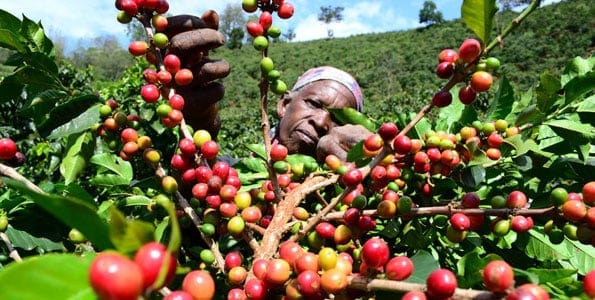
Tanzania, one of Africa’s leading coffee producers, is set to witness a significant increase in coffee production during the market year 2023/24, thanks to the successful implementation of a government initiative to introduce new coffee plants in 2018. The latest report from the USDA Foreign Agriculture Service (FAS) indicates that the country’s coffee output is expected to surge by more than 20% due to favorable weather conditions and the fruitfulness of the new coffee plants.
The introduction of high-yielding Arabica coffee seedlings by the Government of Tanzania in 2018 is proving to be a game-changer for the coffee sector. These new seedlings are now entering the most productive phase of their three-year cycle, and the coffee industry is benefiting immensely from their maturity. The shift from older coffee varieties to these high-yielding plants has paved the way for a remarkable increase in coffee production.
The recovery from previous drought conditions has also played a significant role in driving the production spike. Coupled with the natural cycle of new Arabica trees’ highest production period, Tanzania’s coffee sector is experiencing a robust and promising period of growth.
The USDA FAS report indicates that coffee exports from Tanzania are expected to rise by approximately 13% to reach 1.27 million bags during the market year 2023/24. This would represent approximately 94% of the country’s annual coffee production volume. With the increased green coffee supplies, Tanzania’s position in the global coffee market is set to strengthen further.
The Government of Tanzania remains committed to promoting the growth of the coffee industry in the country. The ongoing implementation of the 2021-2025 coffee development strategy has set ambitious targets for expanding coffee cultivation. As part of this strategy, the government aims to provide 20 million new seedlings to farmers annually. These coffee seedlings are primarily supplied by the Tanzania Coffee Research Institute (TACRI), but distribution has faced some constraints due to funding limitations for seedling production.
Tanzania’s coffee is highly sought after in international markets, with the European Union (EU), Japan, and the United States being its top export destinations. Other significant markets include Morocco, Russia, South Korea, India, Australia, and South Africa. Coffee serves as Tanzania’s most important cash crop and plays a crucial role in supporting the livelihoods of 6-7% of the population.
However, despite the positive outlook for the coffee sector, challenges remain. The FAS report highlights that inefficient use of farming inputs such as fertilizer, poor agricultural practices, and limited access to credit are hindering coffee productivity in Tanzania. Addressing these issues and providing adequate support to small-scale coffee farmers, who contribute around 90% of the country’s green coffee production, will be vital in sustaining the sector’s growth and improving the livelihoods of farmers.
In conclusion, Tanzania’s coffee sector is on track for substantial growth in the upcoming market year. The introduction of high-yielding Arabica coffee seedlings and favorable weather conditions are boosting coffee production by over 20%. As the government continues to invest in the coffee industry’s development, there is optimism that Tanzania’s position as a prominent coffee producer in the global market will only strengthen in the future. However, addressing underlying challenges and providing necessary support to small-scale farmers will be crucial in ensuring the sustained growth and success of the Tanzanian coffee sector.
« * » indique les champs nécessaires